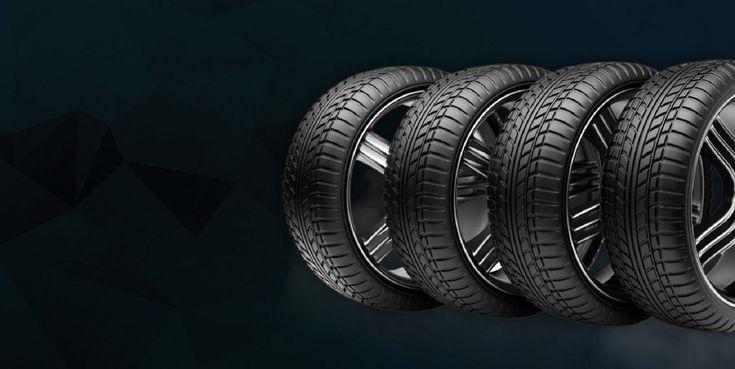How Can I Tell Which One Are Winter & All-Season Tyres? (The Complete Guide)

Most often people ask which tyres should choose—winter or all seasons. The right answer is not easy, and it depends on several criteria to help you make the right tyres in Warwick. Some of the factors you should consider, such as your local climate, annual mileage, and the performance you want to achieve in terms of comfort and safety,
In this blog post, we are going to discuss the difference between winter and all-season tyres. We also share tips for identifying each tyre.
What Is The Difference Between Winter and All-Season Tyres?
You can use both winter and all-season tyres in winter without any problem. Winter tyres should be replaced with summer tyres, while all-season tyres can be used all year round. These types of tyres have major differences and are characterised by different designs, compounds, and technologies.
Winter tyres rubber is made up of a softer compound than all-season tyres and offers better performance once temperatures drop below 7°C.
They have deeper grooves and sipes to improve traction on ice, snow, and water.
All-season tyres rubber is made with a harder compound to allow it to offer a more balanced performance in both summer and winter. These tyres have more sipes than summer tyres but less than winter tyres, Because of this, all-season tyres offer better grip on both dry and icy surfaces or in the presence of snow and water.
The winter tyres ensure you will get high performance in winter with less braking distance than all-season tyres. But in summer, your winter tyres lose their power, making all-season tyres a better-performing tyre in terms of handling, grip, resistance to wear, and lack of noise.
Why Are the Benefits of Winter Tyres?
Winter tyres are made specifically for winter conditions as you use them on snow and icy roads. Winter tyres perform better once the temperature falls below 7°C. In these cold conditions, they are more efficient than all-season tyres, providing better grip, tracker, superior durability, and shorter braking distances.
But, you need to replace winter tyres with summer tyres as the temperature rises above 7°C, which adds extra cost to buying different sets of tyres that need to be every season and storage for the second set. Winter tyres are safe and more efficient during winter but are more expensive and inconvenient to drivers.
What Are The Benefits of All-Season Tyres?
All-season tyres can be used all year round and give you freedom to drive in all seasons, whether it's summer or winter. The presence of the M+S (Mud + Snow) symbol indicates that the tyre has been designed for winter use and it even has a 3PMSF, which is a ‘3 mountain snowflake’ symbol that shows it will offer better performance in cold conditions.
If you compare all-season tyres with summer tyres, the all-season tyres work better in winter and offer superior performance in terms of grip and traction in the event of ice and snow at low temperatures. Not only that but there is no need to periodically replace your tyres. But you need to remember that these tyres are a balanced option and do not perform as well as winter tyres in winter and summer tyres in summer.
Which tyres Should I Choose?
When you are in a situation where you need to choose between either summer and winter tyres or all-season tyres, there are different factors you should consider. For those drivers who don’t cover large distances, who live in a mild climate and are cost-conscious, you should consider all-season tyres, they are the best option for you.
But, for those drivers who cover long distances and travel more than 20,000 kilometres, who live in areas with harsh winters and can afford more expensive tyres, winter tyres are the best option for you.
Factors That Affect Your Choice
Three main factors that can affect the choice between winter tyres and all-season tyres are local legal requirements, annual mileage, and weather conditions. Taking these factors into consideration helps you to choose the right tyres for your vehicle, either all-season tyres that you can use all year round or changing seasonally between summer and winter tyres.
Location
In some European countries, Only seasonal or winter tyres which have 3PSMF marks and all-season tyres with 3PSMF marks are legally allowed to drive on the road.
In the United Kingdom, you can use non-3PMSF-marked all-season or summer tyres anywhere during any season; there are no legal requirements. It is your personal preference based on safety and driving comfort which type of tyres you choose to use in your vehicle.
Local Weather
People who live in a location where mild winters happen can choose all-season tyres for their vehicles. They are safe to use because you don’t have the inconvenience caused by a few days of intense cold and snowfalls in your location.
On the other hand, If winter is long and harsh in your area, with temperatures that often fall below 7°C, frequent snowfalls and the formation of ice on the road,
Average Annual Mileage
For those who do not drive often their vehicle and only used to cover short distances like home to your office or just at the weekends. The all-season continental tyres in Warwick are the most convenient and practical choice for you. Winter tyres are recommended for those who use their vehicle frequently and cover long distances on ice and snow roads.
Comments